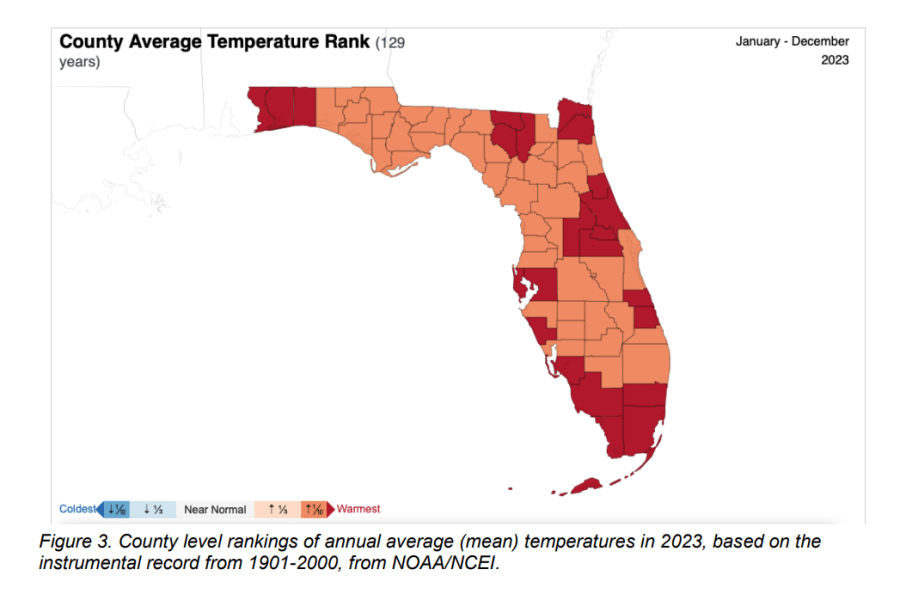Outdoor workers could have less protection from the heat with an impending law that could go into effect during the peak of this summer’s heat.
In a move sparking debate, the Florida Senate passed a bill on Tuesday that restricts the ability of local governments to set their own heat safety regulations for workers. This means cities and counties wouldn’t be allowed to require things like mandatory water breaks or shade access that go beyond what the state or federal government already mandates.
Agricultural and construction workers are especially vulnerable during extreme heat events like those experienced in Jacksonville last summer.
Last year, Jacksonville saw a dramatic increase in scorching temperatures, with 36 days exceeding 95°F – more than double the usual number (18 days). The heat wasn’t just intense, it was dangerous. There were nine days with heat index values exceeding 113°F, far surpassing the average summer’s two such days.
This development comes against the backdrop of Jacksonville’s hottest August on record last year. The heat placed the summer of 2023, as the second hottest summer on record measured at Jacksonville International Airport totaling 74 days with highs of 90°F or more, which was 14 days above normal.
Jacksonville’s local records closely mirrored heat across the rest of Florida tying the 2015 state record for warmest year on record.

Despite these climate changes the bill, introduced by Republican Senator Jay Trumbull, is aimed at creating consistent rules across the state. Supporters argue that a patchwork of local regulations is a burden to businesses and creates confusion.
However, labor groups and worker safety advocates strongly oppose the bill. They argue it could endanger workers, especially those in construction and agriculture, who face high heat risks and are more susceptible to heatstroke, exhaustion, and other heat-related illnesses.
The bill, designated as Senate Bill 1492, needs approval from the House before reaching Governor Ron DeSantis for his signature. If enacted, it would take effect on July 1, 2024.





